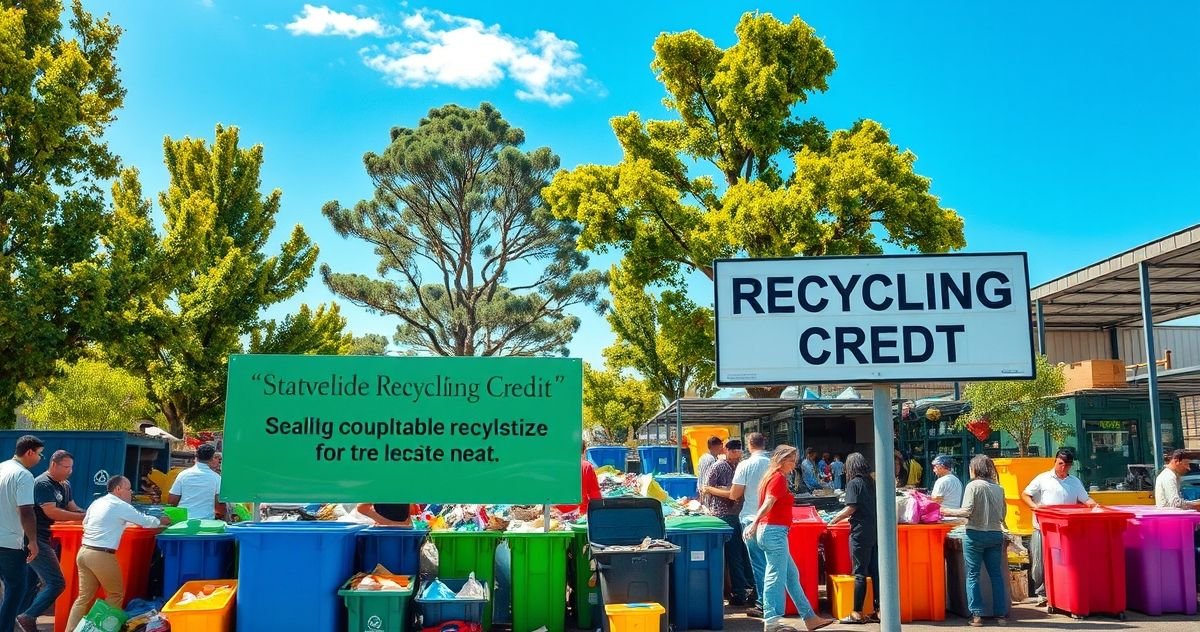Understanding the Statewide Recycling Credit
The Statewide Recycling Credit is a tax credit program designed to incentivize individuals and businesses to participate in recycling efforts. As environmental concerns continue to grow, governments are implementing measures to encourage sustainable practices, and the Statewide Recycling Credit is one such initiative. This credit serves as a financial benefit to taxpayers who actively engage in recycling either through business operations or personal initiatives. By offering this credit, states aim to mitigate waste, conserve natural resources, and promote environmental consciousness.
Primary Purpose of the Statewide Recycling Credit
The primary purpose of the Statewide Recycling Credit is to encourage recycling by providing a financial return to those who invest in sustainable waste management practices. By rewarding taxpayers who reduce their environmental footprint through recycling, the program aims to foster a culture of sustainability. This credit not only motivates individuals and organizations to recycle more but also helps states meet their environmental goals, reduce landfill use, and conserve natural resources.
Key Features of the Statewide Recycling Credit
- Eligibility: The credit is generally available to both individuals and businesses that engage in qualifying recycling activities. Eligibility criteria may vary by state.
- Reimbursement: Participants are eligible to receive a tax credit based on a percentage of the costs incurred in recycling efforts or investment in recycling infrastructure.
- Credit Limits: There may be caps on the total amount of credit a taxpayer can claim, reflecting the state’s budget allocations for the initiative.
- Supporting Documentation: Claimants must provide sufficient evidence, such as invoices and recycling certificates, to substantiate their recycling activities.
Filing and Compliance Requirements
Taxpayers wishing to claim the Statewide Recycling Credit must comply with specific filing requirements. These may include completing dedicated forms that detail the recycling efforts undertaken and any associated costs. Accuracy in reporting and documentation is crucial, as discrepancies may lead to the denial of the credit or future audits. Taxpayers must file within the deadlines specified by their state’s tax authority and ensure that they retain all relevant records for audit purposes, often for several years following the claim.
Penalties for Non-Compliance
If a claimant fails to adhere to the filing requirements or provides inaccurate or fraudulent information, they may face penalties. These can include fines, disallowance of the credit, and potential audits. Consistent failures or fraudulent claims could lead to further legal action and loss of future eligibility for the credit.
Importance of the Statewide Recycling Credit
The Statewide Recycling Credit is significant not just for individual taxpayers but for society as a whole. It plays a vital role in tax resolution by allowing taxpayers to offset their tax liabilities with the credit earned from recycling. Moreover, it helps promote a sustainable environment by reducing waste and encouraging the reuse of materials. Businesses benefit financially from reduced waste disposal costs, and the credit can improve public perception of a company as environmentally responsible. Overall, this credit supports broader efforts to combat environmental challenges and transition towards a more sustainable future.
Conclusion
In conclusion, the Statewide Recycling Credit is a critical component of tax policy aimed at encouraging eco-friendly practices. Through financial incentives, it fosters an environment where recycling becomes an integral part of personal and corporate responsibility. By understanding and complying with the credit’s requirements, taxpayers can not only benefit financially but also contribute significantly to environmental conservation efforts.



